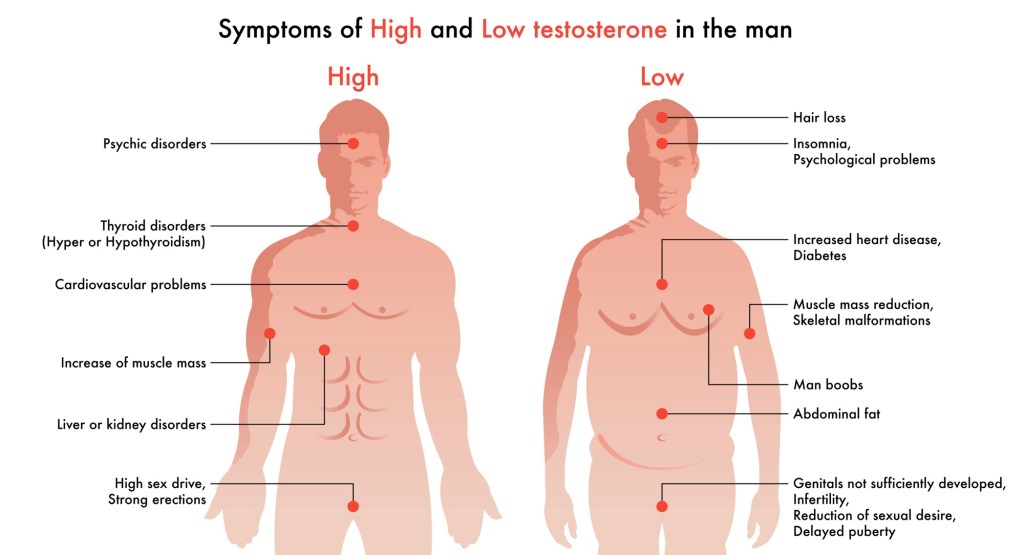Anxiety and hormonal imbalances can significantly impact our mental well-being. One such hormonal factor that has gained attention in relation to anxiety is testosterone deficiency. In this blog post, we’ll explore the potential link between anxiety and low testosterone levels.

The Role of Testosterone:
Testosterone is a key hormone primarily associated with male development, but it also plays crucial roles in women’s health. It contributes to mood regulation, energy levels, and overall cognitive function. When testosterone levels are insufficient, various aspects of mental health, including anxiety, may be affected.
Research Insights:
Studies have suggested a potential connection between low testosterone levels and increased anxiety. Testosterone deficiency might influence neurotransmitter regulation, impacting mood and emotional stability. While more research is needed to establish a definitive link, the existing findings highlight the importance of hormonal balance in mental health.
A new study has pointed to a connection between low testosterone, a receptor in the brain called Tachykinin receptor 3 (TACR3), and anxiety.
Symptoms of Testosterone Deficiency:
Understanding the signs of testosterone deficiency is crucial for early detection and intervention. Symptoms may include fatigue, low libido, irritability, and difficulty concentrating. These symptoms, when left unaddressed, could contribute to the development or exacerbation of anxiety.
Addressing Testosterone Deficiency:
If you suspect testosterone deficiency, it’s essential to consult with a healthcare professional. They can conduct appropriate tests to assess hormone levels and determine the most suitable course of action. Treatment options may include hormone replacement therapy (HRT), lifestyle changes, or a combination of approaches.
Lifestyle Factors:
In addition to medical interventions, certain lifestyle factors can positively influence testosterone levels. Regular exercise, a balanced diet rich in nutrients, and sufficient sleep play integral roles in maintaining hormonal balance. Managing stress through relaxation techniques can also contribute to overall well-being.
Functional Medicine Approaches to Anxiety Management:
Addressing anxiety associated with testosterone deficiency involves an integrative approach. Combining medical interventions with lifestyle adjustments can enhance the effectiveness of treatment. Mental health support, such as therapy or counseling, may also be beneficial in managing anxiety symptoms.
While research on the link between anxiety and testosterone deficiency is ongoing, understanding the potential connection provides valuable insights for both individuals and healthcare professionals. Recognizing the symptoms, seeking appropriate medical guidance, and adopting an integrative approach to well-being can contribute to improved mental health and overall quality of life. If you suspect hormonal imbalances, consult with a healthcare professional for personalized advice and treatment options.
In our 12 week Group Healing Program you will learn how to identify symptoms of a hormonal imbalance in yourself and what to do about it.
Join us for a truly transformative journey with weekly live personalized group healing sessions that will guide you to your best self through detoxification, diet, exercise and hormonal balance. Sign up today for this exclusive program and take advantage of our payment plan. If you are ready to be accountable, focused and willing to receive support and encouragement to reach your health goals, you don’t want to miss this.💚
In health,



 Posted by Dr. Gina Nick
Posted by Dr. Gina Nick